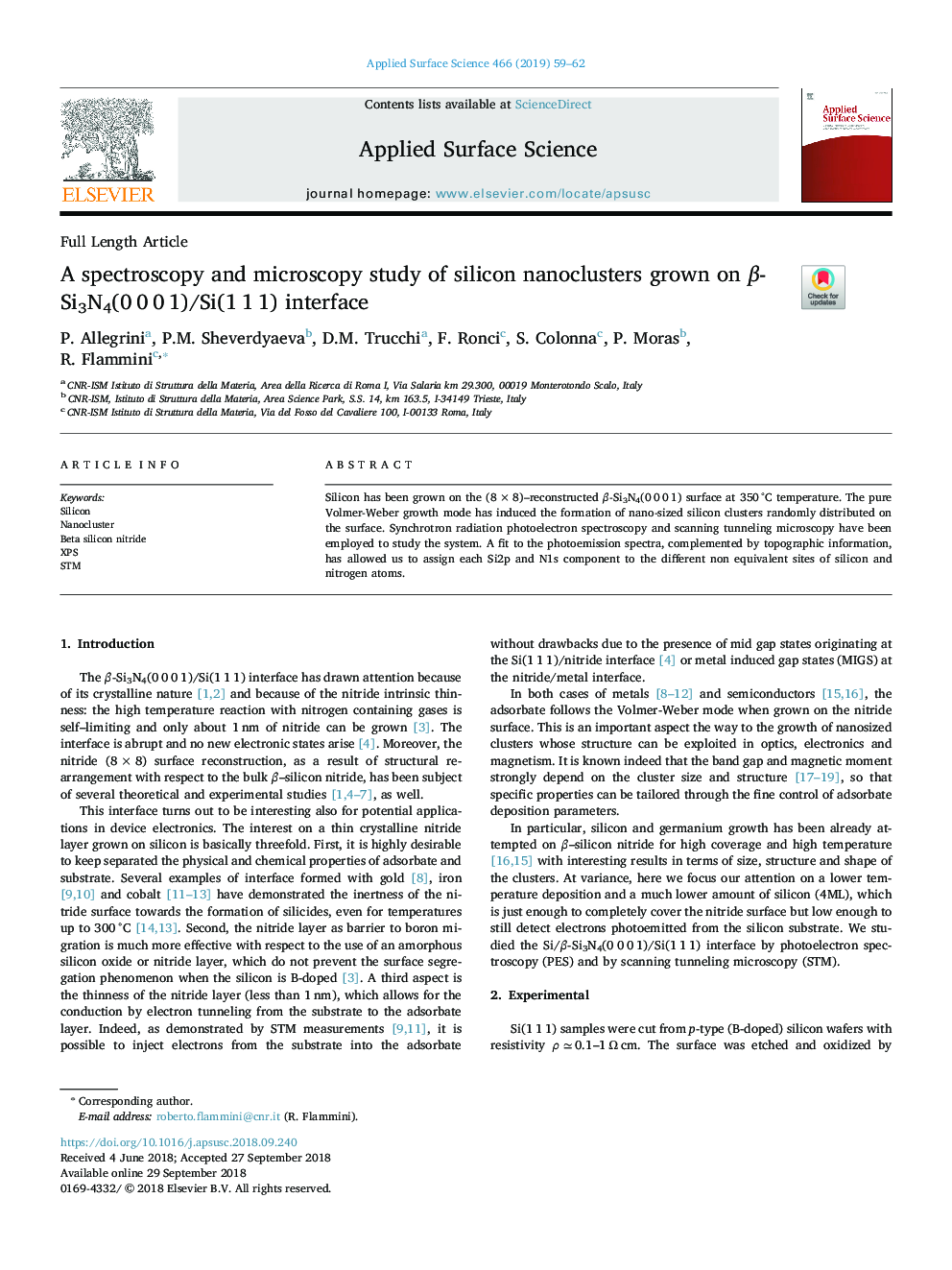| Article ID | Journal | Published Year | Pages | File Type |
|---|---|---|---|---|
| 10998081 | Applied Surface Science | 2019 | 4 Pages |
Abstract
Silicon has been grown on the (8â¯Ãâ¯8)-reconstructed β-Si3N4(0â¯0â¯0â¯1) surface at 350â¯Â°C temperature. The pure Volmer-Weber growth mode has induced the formation of nano-sized silicon clusters randomly distributed on the surface. Synchrotron radiation photoelectron spectroscopy and scanning tunneling microscopy have been employed to study the system. A fit to the photoemission spectra, complemented by topographic information, has allowed us to assign each Si2p and N1s component to the different non equivalent sites of silicon and nitrogen atoms.
Keywords
Related Topics
Physical Sciences and Engineering
Chemistry
Physical and Theoretical Chemistry
Authors
P. Allegrini, P.M. Sheverdyaeva, D.M. Trucchi, F. Ronci, S. Colonna, P. Moras, R. Flammini,
